Octopuses are often acknowledged as one of the cleverest animals on earth. These eight-legged cephalopods are famed for their problem-solving, their mysterious beauty, and their unusual anatomy. From Lovecraftian horrors to a hit song from The Beatles to a wide array or cartoon and comic book characters, the impact of the octopus is felt throughout human cultures.
The octopus’s name comes from the Greek word “oktopus” meaning “eight-legged.” Because “octopus” comes from a Greek word that was Latinized before being adopted into English, there is quite a lot of confusion surrounding the correct way to pluralize it. “Octopi” and “octopodes” are both common choices for a plural version of this word. Both of these are considered incorrect. Thanks to its adoption into English, the technically correct plural for “octopus” is actually “octopuses!” In this article, we’ll investigate octopuses and some of the fascinating myths, symbols, and ideas connected with these fascinating aquatic animals. (1)
Table of contents
Octopus symbolism and meaning
Octopuses are considered to be amongst the most intelligent animals in the world. The internet is chock full of videos and anecdotes of octopuses using their incredible brains to solve problems in clever, and often mischievous, ways. Octopuses have been known to solve mazes. They are capable of opening containers as well as squeezing themselves inside of small containers in order to retrieve their desired reward. In one aquarium, it was reported that fish from various tanks kept going missing. The aquarium set up cameras to try and solve this mystery and were shocked to find their resident octopus was the culprit. The octopus would lift the lid of its tank when nobody was looking and crawl over to other tanks to feed on the fish therein. (2)
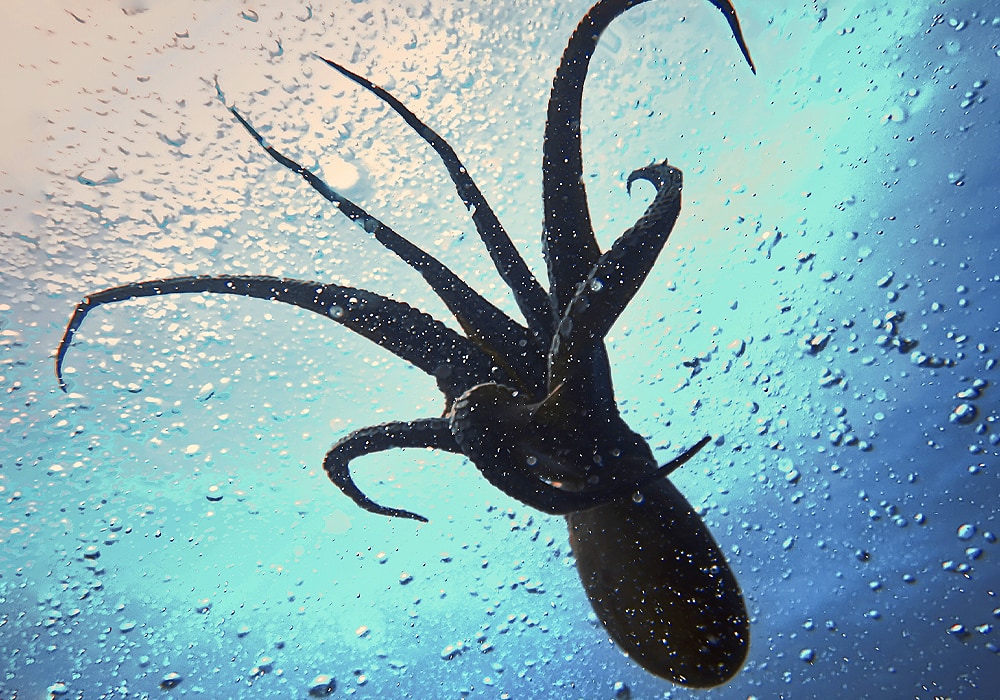
One of the strongest associations connected with the octopus is versatility and mystery. This is because octopuses have very unique abilities. They can manipulate their bodies to fit into almost any space. So long as their beaks can fit, the octopus can make its body fit. Furthermore, octopuses are often capable of changing color at will. Their abilities to change their shape and color gives the octopus incredible camouflage abilities. For this reason, octopuses are known for their adaptability, fluidity, and mysterious natures. (3)
Many people are not aware of this, but octopuses are actually venomous. The Blue-ringed Octopus is well-known for its lethal capabilities. One bite from the beak of this small creature is enough to kill an adult human, often in as little time as just a few minutes. The Blue-ringed Octopus may be the most deadly one around, but recent research indicates that all octopuses are venomous to some extent. (4)
The sometimes-deadly venom of the octopus is not the only biological weaponry that these cephalopods employ. Octopuses are also famous for their ability to expel “ink” when threatened. Octopus ink is a mix of glandular secretions including melanin and mucus. This secretion is used to confuse threats by enveloping them in murky ink and irritating their senses. Thanks to their ink and their venomous bites, octopuses are associated with poison, deception, and viciousness. (5)
Octopuses have eight legs, called tentacles, upon which there are a number of grasping suction-cup-like appendages called “suckers.” Most octopuses have two rows of suckers along each tentacle, although this is not always the case. Because of the grasping power of the octopus’s tentacles, these aquatic invertebrates are often associated with reaching for, grasping for, or protecting the things that one values. (6)
Octopuses are also connected with parenthood and sacrifice. Male octopuses die when they breed. Female octopuses then spend the remainder of their lives starving themselves in order to guard and protect their eggs until the new generation hatches successfully. Once this is done, the female’s body breaks down and she dies, having accomplished her parental duty.
Octopus Native American symbolism
According to a Haida myth, a man and his family were once paddling their canoes near a cove where a family of “Devilfish” lived. Devilfish is one name used for octopuses. According to the legend, the young man, who was a gifted shaman, was snatched from his canoe by the tentacles of a Devilfish. He was dragged beneath the water, much to his family’s dismay, and was assumed to have died. What nobody knew, however, was that the Devilfish had brought the man to her father, who was chief of the Devilfish. Within the village of the Devilfish, the young man was wed to the chief’s daughter and became a respected Devilfish himself. After a while, though, the man began to miss the surface. He asked his father-in-law for a canoe so that he and his new wife could rejoin the human world. This was granted to them and they returned to the young man’s village laden with treasure from the Devilfish cave. There, the man and his wife and their children lived as humans for many years. One day, the man’s wife began to feel homesick for the sea. She returned to her octopus form and slipped through the cracks in the floorboards of their home and made her way to the ocean. When the man saw this, he returned to his octopus form too, and joined his wife beneath the waves forevermore. (7)
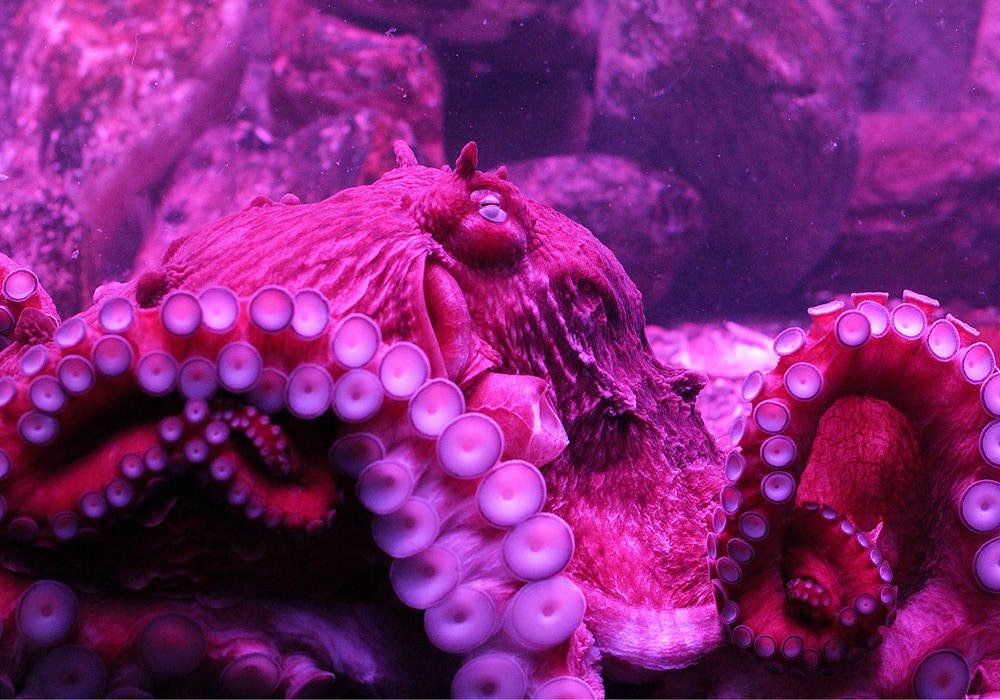
For some tribes in the Pacific Northwest, the Giant Pacific Octopus is thought of as a symbol of prosperity, good luck, and medicine. This is due, in part, to the fact that the number eight is considered auspicious to some of these tribes. (8)
Octopus Eastern Symbolism
The natiev Ainu people of Japan have a legend which features an enormous kraken-like octopus which dwells beneath the sea and devours passing boats. This creature, called “Atkor Kamuy” in Ainu, and “Akkorokamui” in Japanese, is thought of as a divine god of the sea. Atkor Kamuy is said to be both fearsome and admirable. His size is supposed to be so vast and formidable that he can swallow entire whales in one gulp. (9)
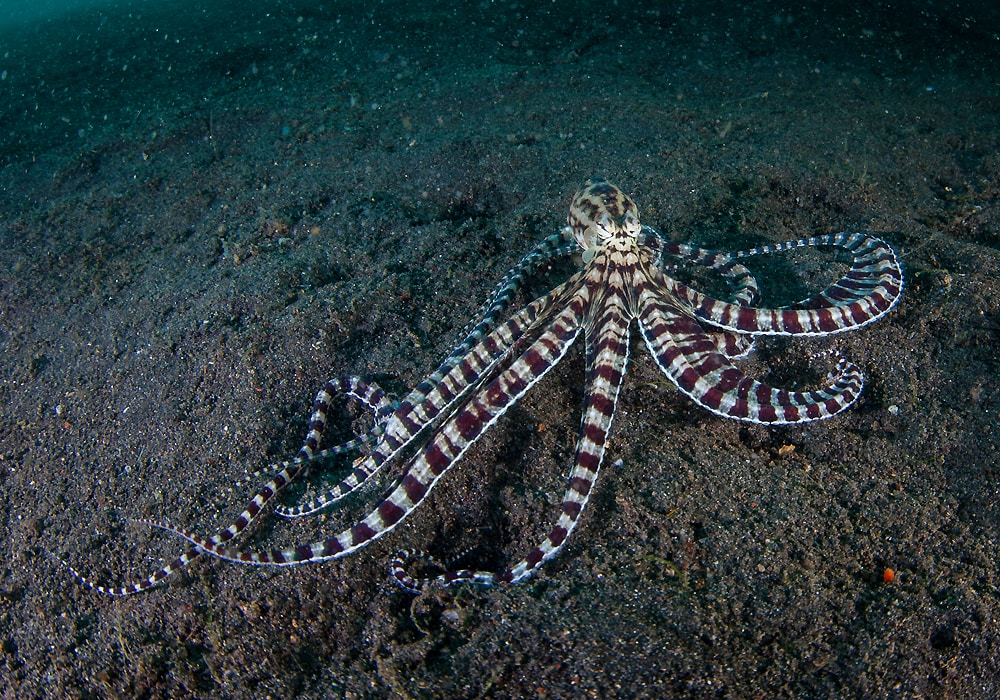
Octopus Christianity symbolism
Octopus are no longer recognized as such, but older sources often refer to these creatures as “Devilfish.” Perhaps because their appearance is thought to be menacing or sinister, or because of their venomous bite, octopuses are sometimes connected with ideas like evil, sin, death, and the devil himself. (10)(11)
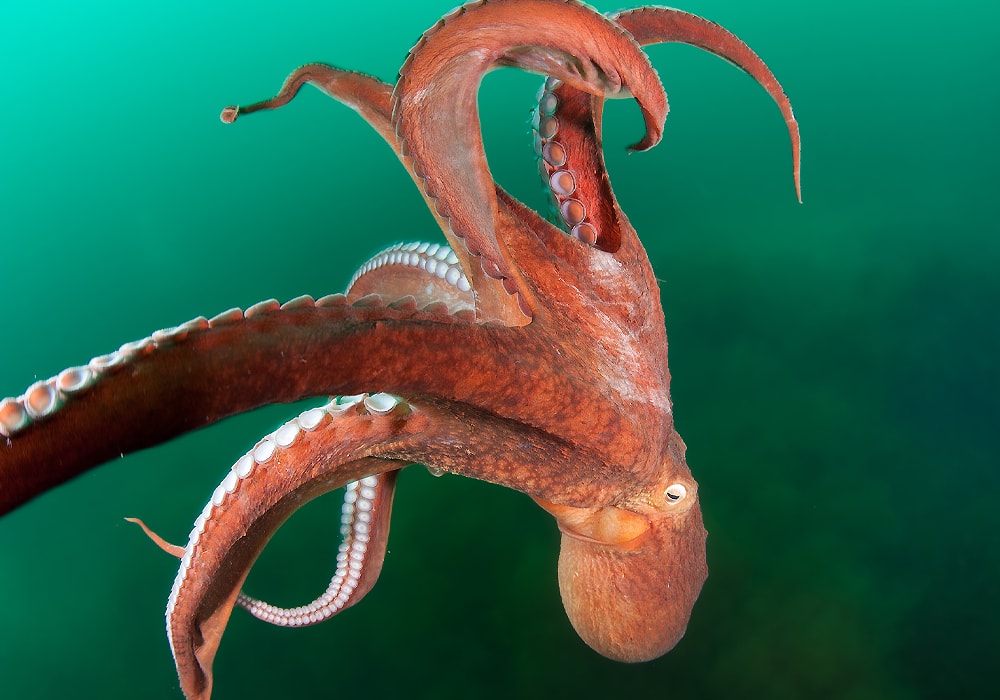
Octopus Celtic symbolism
References to octopuses are not easy to find in Celtic sources. While octopus-like creatures are featured quite a bit in Scandinavian myth, Celtic myths don’t seem to dwell as much upon these beasts. Still, it can be assumed, at least, that the octopus would be connected with the Celtic gods of the sea. (12)
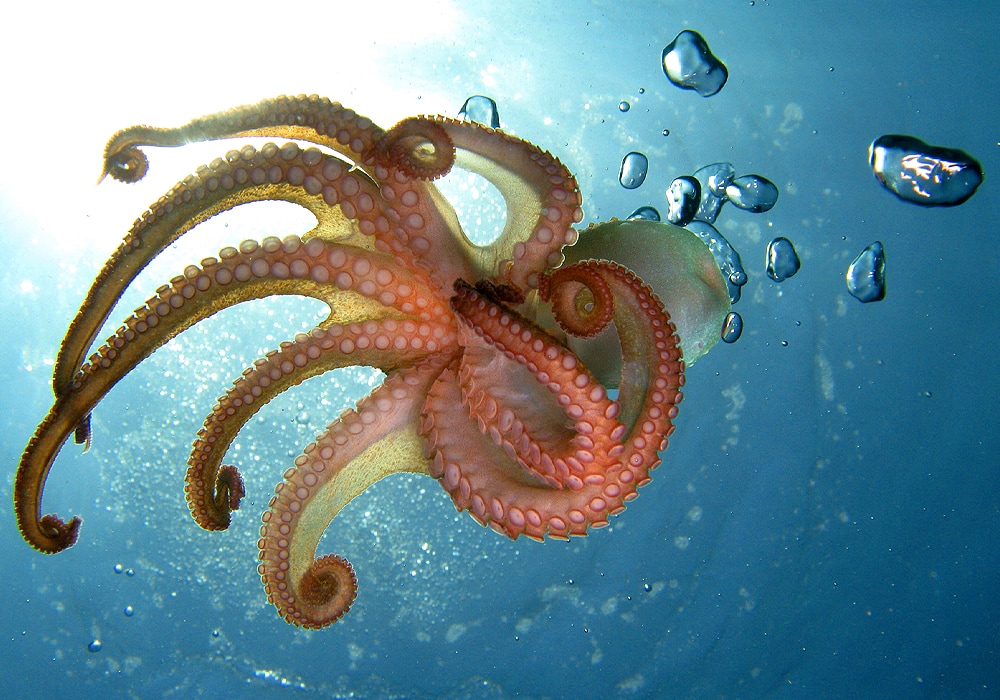
Octopus African symbolism
Like the Kraken, a cryptid of Scandinavian origin which we will discuss in a later section, or Atkor Kamuy, Central African mythology also features a giant and deadly cephalopod who grasps victims with its incredibly long tentacles. According to Central African myth, the “Migas,” is a giant squid or octopus-like monster which dwells is fresh water lakes or swamps. It can travel over land, but is most comfortable in water. The Migas is thought to be easily capable of eating humans. (13)
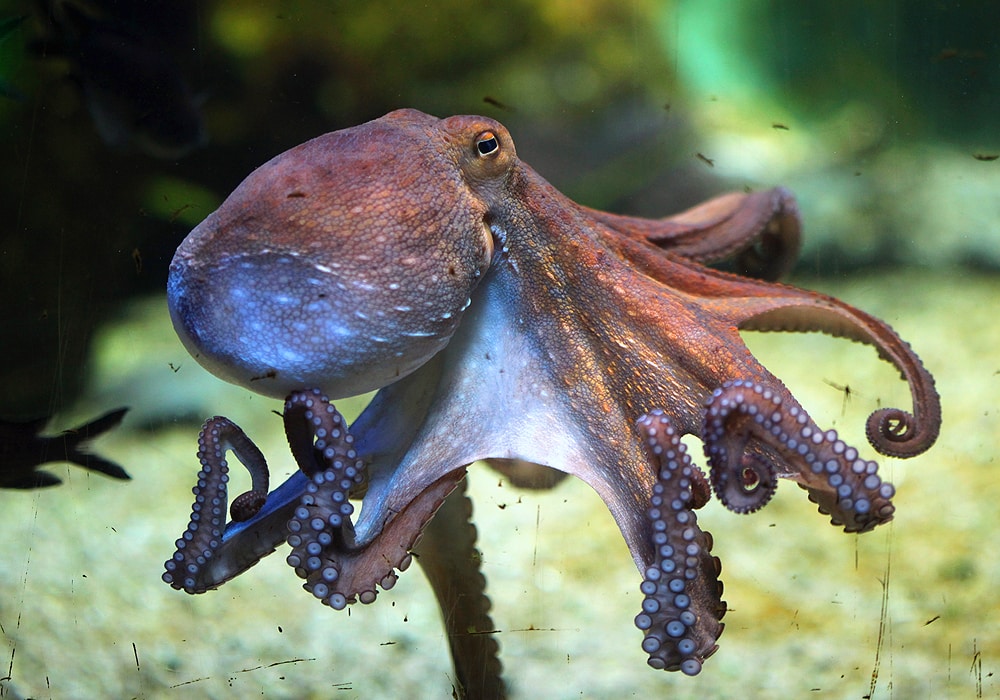
Octopus in dreams
Dreaming of the octopus can indicate a fear that one has yet to address. There is a reason that H.P. Lovecraft chose to evoke the image of the octopus when describing the eldritch horror of Cthulu. These tentacled animals are found deep within the sea and often feel otherworldly in appearance to us land-dwelling mammals. Dreaming of the octopus may represent something that lies concealed beneath the surface in your conscious mind. (14)
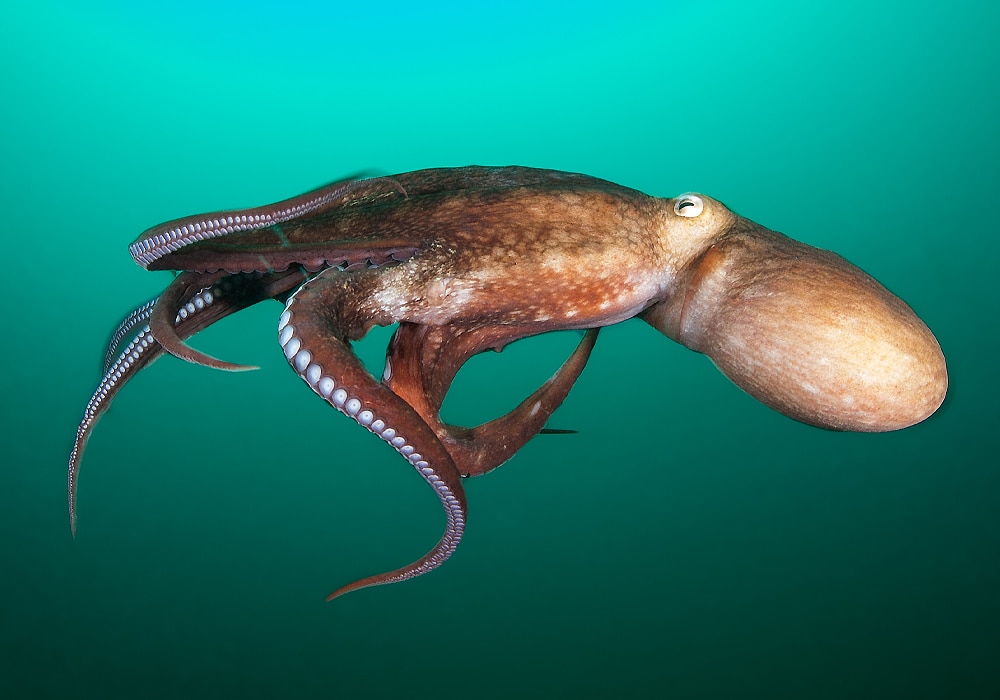
Dreaming of an octopus may speak to a desire for control. With their eight limbs, each one equipped with grasping suckers, the octopus is built for controlling and manipulating its immediate environment with ease. An octopus dream may indicate a desire to emulate this control. (15)
Octopus encounters and omens
An encounter with an octopus can be a profound reminder that there is an entire world around us that we do not see. Octopuses disguise themselves as they move through their environment; an environment which humans are often not able to access at all. An octopus encounter can be a great reminder that there are incredible things that lie just beyond our immediate perception.
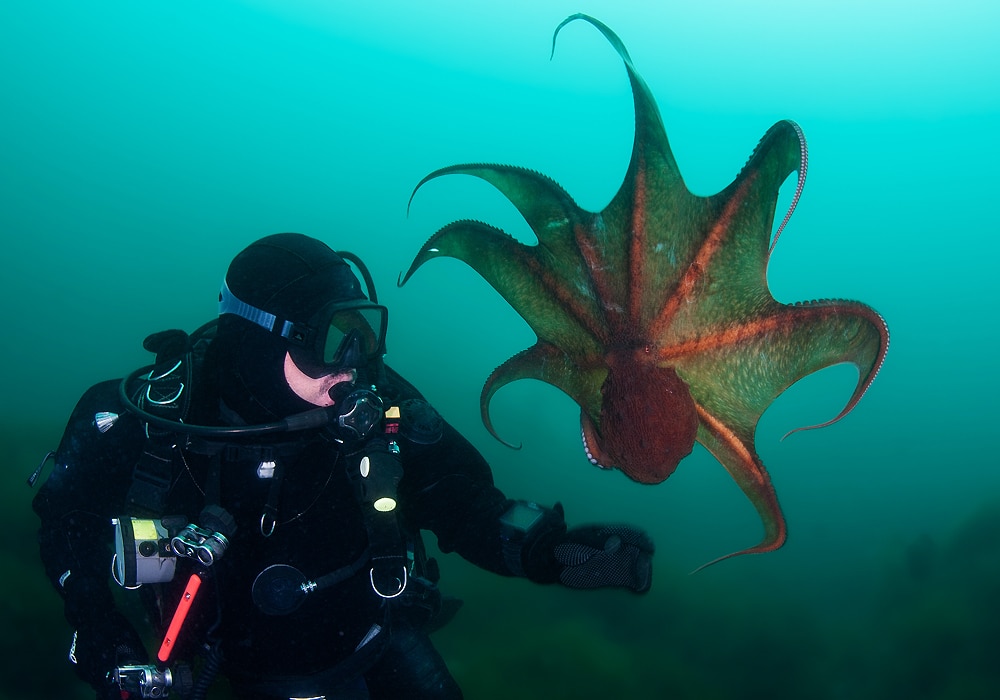
An octopus encounter may also be a reminder not to sell oneself short. With the right attitude and enough willingness to roll with the punches, incredible things are possible. Octopuses can walk on land, squeeze themselves through miniscule openings, and much more than we could ever predict by simply looking at them. (15)
Octopus mythology and folklore
The most famous piece of mythology surrounding the octopus is that of the “Kraken.” The Kraken is usually depicted as an enormous octopus or squid which lurks in the deep sea, waiting for any opportunity it finds to destroy passing ships, sometimes even devouring the ships themselves or their crews. Kraken mythology is very old and seems to stem from a fear of the unknown associated with the sea. The earliest sightings of this beast occur around Norway and Greenland as many as 800 years ago, though the legend seems to be even older than this. (16)
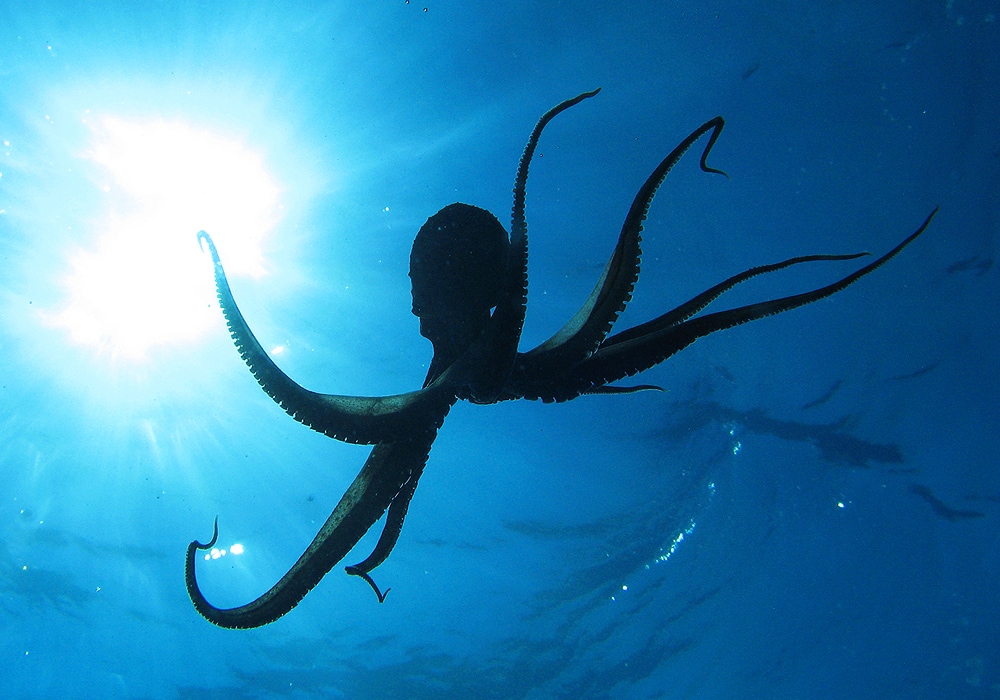
Octopuses appear quite a bit in ancient Greek and Minoan art. The octopus was a popular motif in Minoan ceramics and is often found adorning urns, jars, and amphorae from this period. In this capacity, the octopus was used as an expression of admiration for the mighty, terrifying, and life-giving sea. (17)(18)
Octopus spirit animal
If your spirit animal is the octopus then you are a born problem-solver. People with the octopus as their spirit animal are clever, often too clever for their own good. They face new problems with an attitude of “how” rather than “if.”
People with the octopus as their spirit animal are mischievous and secretive, however they are willing to devote themselves to others if the cause feels right to them. They can be fiercely loyal to their families and will use their incredible talents to the benefit of the ones they love. (19)
Octopus totem animal
If your totem animal is the octopus, then you are likely a deeply creative person with an incredible talent for intuition. People with the octopus as their totem animal are uniquely in tune with their environments and their peers. The octopus totem animal has the incredible ability to intuit the best course of action from a situation, long before others would be able to decide.
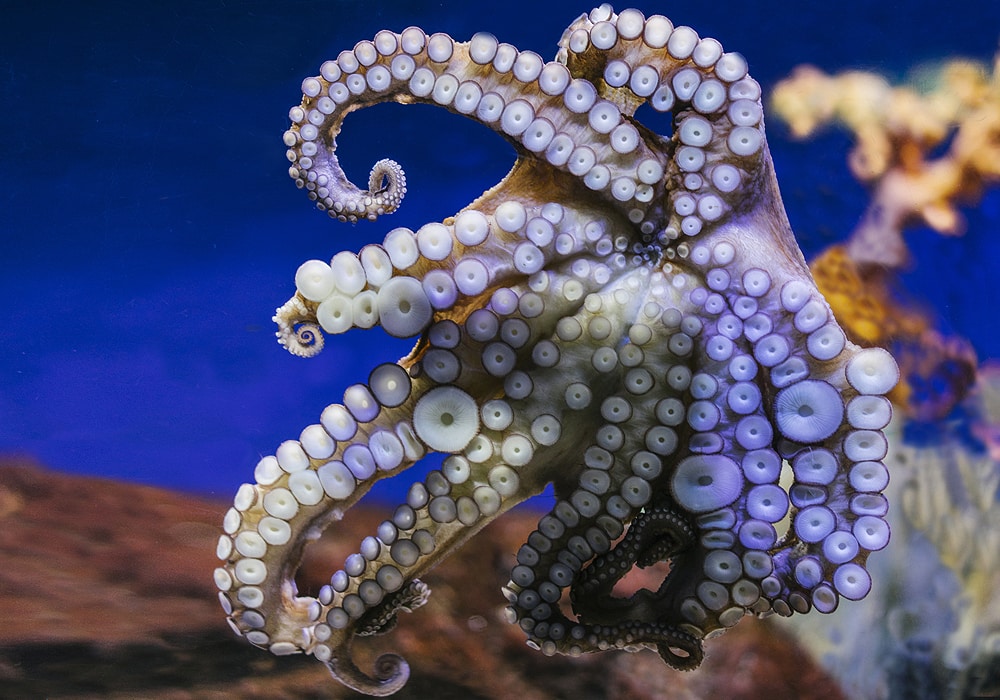
The octopus totem animal is creative and loves to express itself, however people with this totem animal are often secretive and shy. People with the octopus totem animal must balance their desire to express themselves with their discomfort with opening up to others.(20)
Octopus power animal
If the octopus is your power animal, you may be blessed with a uniquely potent ability to adapt to any situation. The octopus is like the living embodiment of the sea. Like water, this cephalopod is fluid and unafraid to change its shape. The octopus power animal takes on whatever shape will allow it to survive and thrive in the ever-changing habitat of the untamed sea.
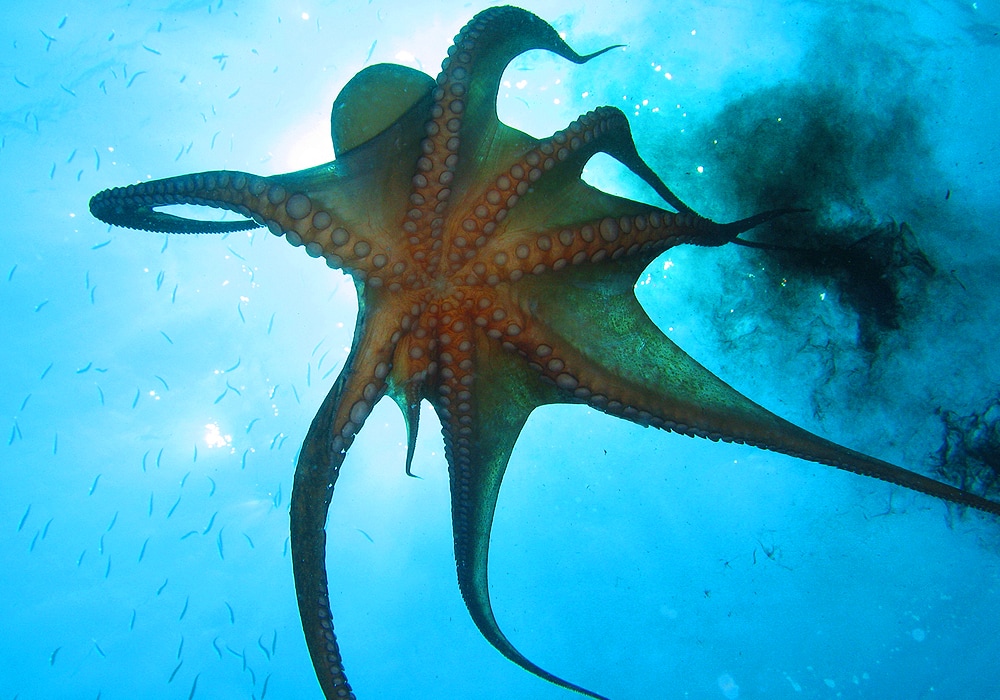
Octopus tattoo meaning
An octopus tattoo may be a symbol of fluidity, adaptability, admiration for the beauty of the oceans, or problem-solving. Octopuses are often associated with intelligence and mischief.
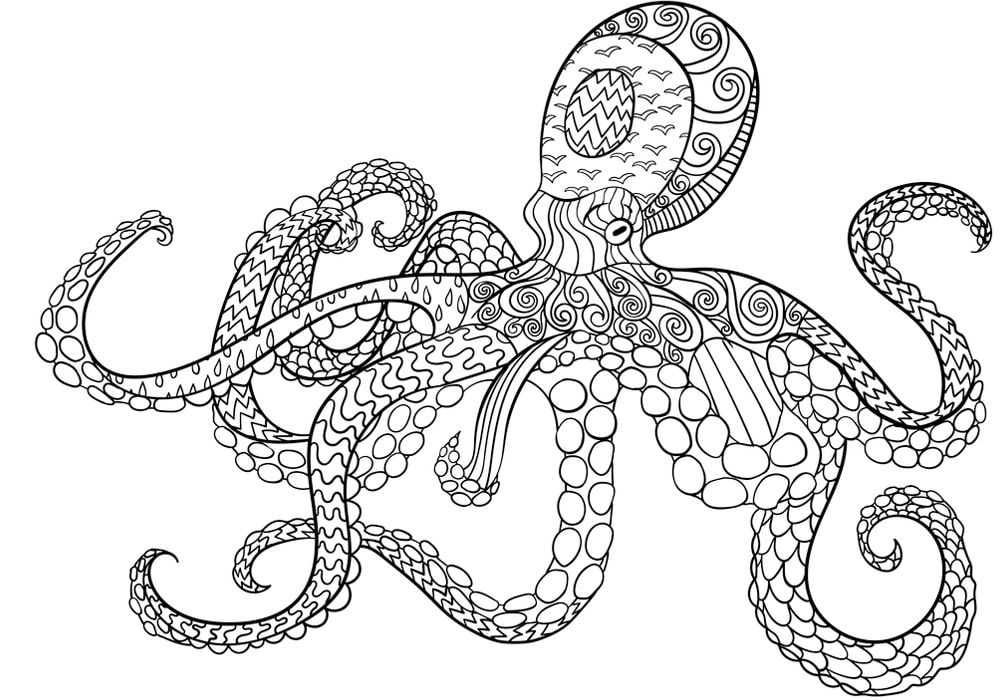
An octopus tattoo may also represent fear and triumph over fear.
Conclusion
From self-sacrificing mothers who spend the last period of their lives starving in order to protect their young, to fearsome “devilish” monsters awaiting their chance to sink boats and devour sailors, the reputation of the octopus is vast and varied. Throughout it all, there is a continuing sense of awe and mystique for the octopus’s otherworldly form. Unlike anything on land, the octopus acts as a stand-in for the sea itself, the vast and uncharted hiding place for the endless mysteries of or mother earth.
Related
